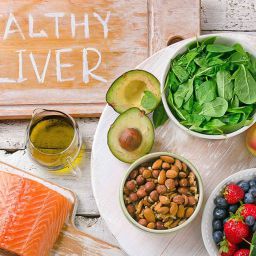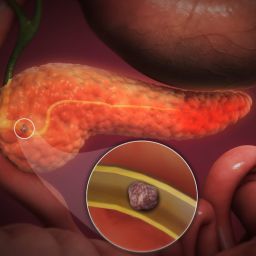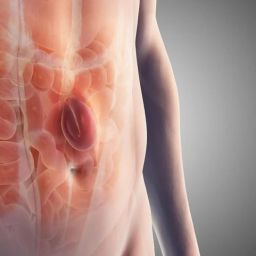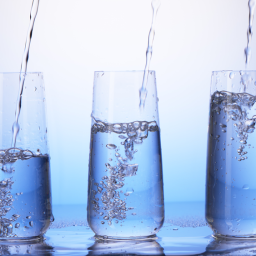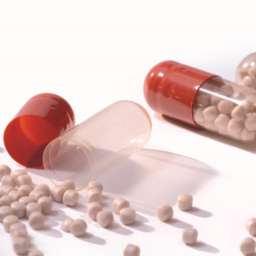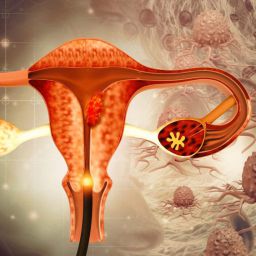
The Composition of Acidic Beverages
To understand how acidic beverages impact stomach health, it’s important to first understand their composition. Acidic beverages typically have a low pH, usually below 7, which gives them their characteristic tartness. The main sources of acidity in these beverages are:
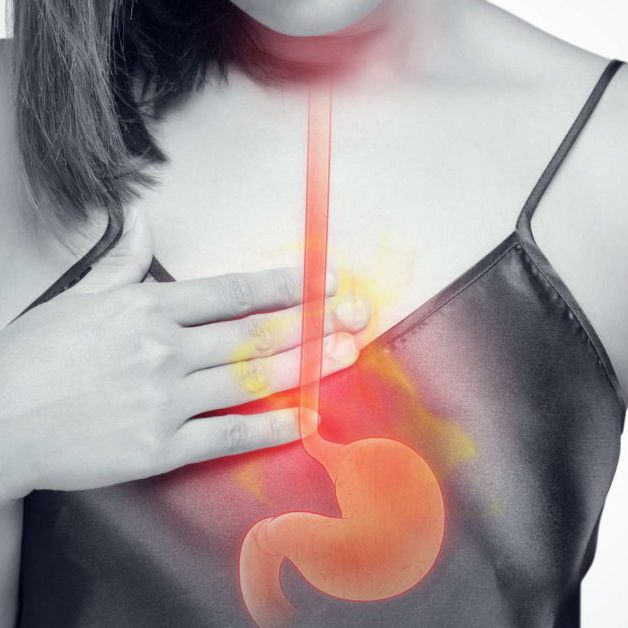
- Carbonic Acid: Found in carbonated drinks, including sodas, sparkling waters, and some energy drinks, carbonic acid is formed when carbon dioxide gas is dissolved in water. This acid can irritate the stomach lining, especially when consumed in large quantities.
- Citric Acid: Commonly found in fruit juices, particularly citrus fruits like lemons, oranges, and grapefruits, citric acid adds a sour taste to beverages. While natural, citric acid can erode tooth enamel and irritate the stomach lining.
- Tannic Acids: Found in coffee, tea, and some types of wine, tannic acids contribute to the astringency of these drinks. These acids can trigger stomach discomfort, particularly when consumed on an empty stomach.
- Phosphoric Acid: This is commonly found in sodas, especially colas. Phosphoric acid can lower the pH of the stomach and may contribute to the development of acid reflux or gastroesophageal reflux disease (GERD).
- Acetic Acid: Present in vinegar-based beverages and some flavored drinks, acetic acid can irritate the stomach lining when consumed in high quantities.
While each of these acids may have different effects, their cumulative impact on the stomach’s health can be significant, especially when consumed regularly or in large quantities.
How Acidic Beverages Affect the Stomach Lining
The stomach’s primary defense mechanism against acid damage is its mucosal lining, which acts as a protective barrier. The stomach lining contains mucus, bicarbonate ions, and prostaglandins that protect it from the strong acids used in digestion. However, when acidic beverages are consumed in large quantities, they can overwhelm this natural defense system, leading to irritation, inflammation, and damage to the stomach lining.
Increased Acid Production
Acidic beverages, particularly carbonated drinks and fruit juices, can stimulate the stomach to produce more acid. This excess acid production can overwhelm the protective mechanisms of the stomach lining, leading to conditions like gastritis, acid reflux, and ulcers.
- Gastritis: The inflammation of the stomach lining, known as gastritis, can occur when acidic beverages irritate the stomach lining over time. Symptoms of gastritis include stomach pain, bloating, nausea, and indigestion. Chronic gastritis can lead to more serious complications if left untreated.
- Gastroesophageal Reflux Disease (GERD): When excessive acid production overwhelms the stomach, it can push stomach contents, including acid, into the esophagus, causing heartburn and other symptoms of acid reflux. Regular consumption of acidic beverages increases the risk of GERD, a condition where acid reflux occurs frequently, leading to discomfort and damage to the esophagus.
- Stomach Ulcers: Persistent irritation caused by acidic beverages can also contribute to the formation of stomach ulcers. These painful sores form when the stomach lining is worn away by excess acid, and symptoms include burning stomach pain, nausea, and vomiting. If untreated, ulcers can lead to more serious complications, including bleeding and perforation of the stomach wall.
Disruption of pH Balance
The stomach’s pH balance is finely tuned to ensure proper digestion. Normal stomach acid has a pH ranging from 1.5 to 3.5, which is necessary for breaking down food. However, when acidic beverages are consumed, they can alter the stomach’s pH, making it either too acidic or too alkaline. This imbalance can interfere with digestion and irritate the stomach lining.
When the stomach becomes too acidic due to external sources like acidic beverages, the increased acidity can cause discomfort, bloating, and indigestion. On the other hand, when the stomach becomes too alkaline, it may impair the breakdown of food, leading to poor nutrient absorption and digestive issues.
The Impact of Acidic Beverages on Gastric Emptying
Gastric emptying refers to the process by which food and liquids move from the stomach into the small intestine. The rate at which gastric emptying occurs is crucial for proper digestion. When acidic beverages are consumed, they can slow down or disrupt gastric emptying, leading to various digestive issues.
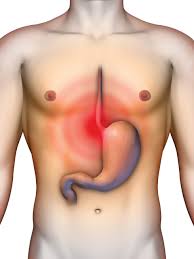
- Delayed Gastric Emptying: Studies have shown that carbonated beverages, in particular, can delay gastric emptying. This leads to a feeling of fullness, bloating, and discomfort after meals. When the stomach is slow to empty, it can cause excessive pressure on the stomach lining, potentially leading to acid reflux or gastritis.
- Increased Pressure on the Stomach: Acidic beverages, especially carbonated drinks, introduce gas into the stomach. This increases the volume of gas in the stomach, which in turn increases pressure on the lower esophageal sphincter (LES). The LES is responsible for preventing stomach acid from rising into the esophagus. When pressure on the LES increases, it can cause acid reflux, heartburn, and GERD.
Effects of Acidic Beverages on the Intestinal Microbiome
The intestinal microbiome consists of trillions of bacteria and other microorganisms that live in the digestive tract and are essential for digestion, immune function, and overall health. Research has shown that diet, including the consumption of acidic beverages, can affect the balance of gut bacteria.
- Imbalance of Gut Flora: Consuming acidic beverages in excess may disrupt the balance of gut flora, promoting the growth of harmful bacteria while suppressing beneficial bacteria. An imbalance in gut bacteria (dysbiosis) can contribute to digestive problems such as bloating, gas, and irritable bowel syndrome (IBS).
- Increased Risk of Inflammation: Dysbiosis caused by excessive intake of acidic beverages may also lead to increased intestinal permeability, often referred to as “leaky gut.” This condition allows harmful substances to pass from the intestines into the bloodstream, potentially triggering inflammation and contributing to conditions like IBS, Crohn’s disease, and even systemic inflammation.
Long-Term Consequences of Excessive Acidic Beverage Consumption
Consuming acidic beverages regularly over the long term can have serious consequences for stomach health. Some of the potential long-term effects include:

- Chronic Gastritis: Chronic irritation of the stomach lining due to excessive consumption of acidic beverages can result in long-term gastritis, a condition that may require medical intervention to manage symptoms and prevent complications.
- Development of Stomach Ulcers: Repeated irritation from acidic drinks can lead to the development of stomach ulcers, which can cause severe pain, bleeding, and even perforation if not treated promptly.
- Osteoporosis: Some research suggests that excessive consumption of acidic beverages, particularly sodas, may lead to a decrease in bone density, potentially contributing to osteoporosis over time. This is due to the high levels of phosphoric acid found in many sodas, which may interfere with calcium absorption and lead to weakened bones.
- Increased Risk of GERD: Long-term consumption of acidic beverages can contribute to the development of chronic GERD, a condition where acid reflux occurs frequently. GERD can lead to esophageal damage, including narrowing of the esophagus, scarring, and an increased risk of esophageal cancer.
How to Minimize the Negative Effects of Acidic Beverages
While it’s not necessary to eliminate acidic beverages from your diet entirely, it’s important to consume them in moderation and take steps to minimize their impact on stomach health. Here are some tips to protect your stomach while still enjoying your favorite drinks:
- Limit Consumption: Reducing the intake of acidic beverages such as sodas, energy drinks, and fruit juices can significantly reduce the strain on your stomach. Opt for healthier alternatives, such as water, herbal teas, or beverages with a more neutral pH.
- Drink Water Alongside Acidic Beverages: When you consume an acidic beverage, try to drink water alongside it. This can help dilute the acidity in your stomach and reduce the risk of irritation.
- Avoid Drinking on an Empty Stomach: Drinking acidic beverages on an empty stomach can increase the likelihood of stomach irritation. If you need to consume an acidic beverage, try having it with a meal to buffer its effects.
- Choose Low-Acid Options: When selecting beverages, opt for those with lower acidity. For example, avoid drinks with added citric acid or high levels of carbonation.
- Use a Straw: When drinking acidic beverages like soda or fruit juice, using a straw can help minimize contact with your teeth and reduce the risk of enamel erosion. While this doesn’t directly protect your stomach, it does contribute to overall oral health.
- Maintain a Balanced Diet: A healthy diet rich in fiber, lean proteins, and healthy fats can support stomach health and help neutralize the effects of acidic beverages. Include plenty of vegetables, fruits, and whole grains to promote proper digestion and protect the stomach lining.
Acidic beverages can have significant consequences for stomach health when consumed in excess. From increasing acid production to irritating the stomach lining, acidic drinks can contribute to conditions like gastritis, GERD, ulcers, and even affect the intestinal microbiome. By understanding the effects of acidic beverages on stomach health and making mindful choices about what you drink, you can protect your stomach from long-term damage.
While acidic beverages can be enjoyed in moderation, it’s important to be aware of their potential risks. By reducing your intake, drinking water alongside acidic beverages, and choosing lower-acid options, you can help safeguard your stomach health and ensure better digestion in the long term.

